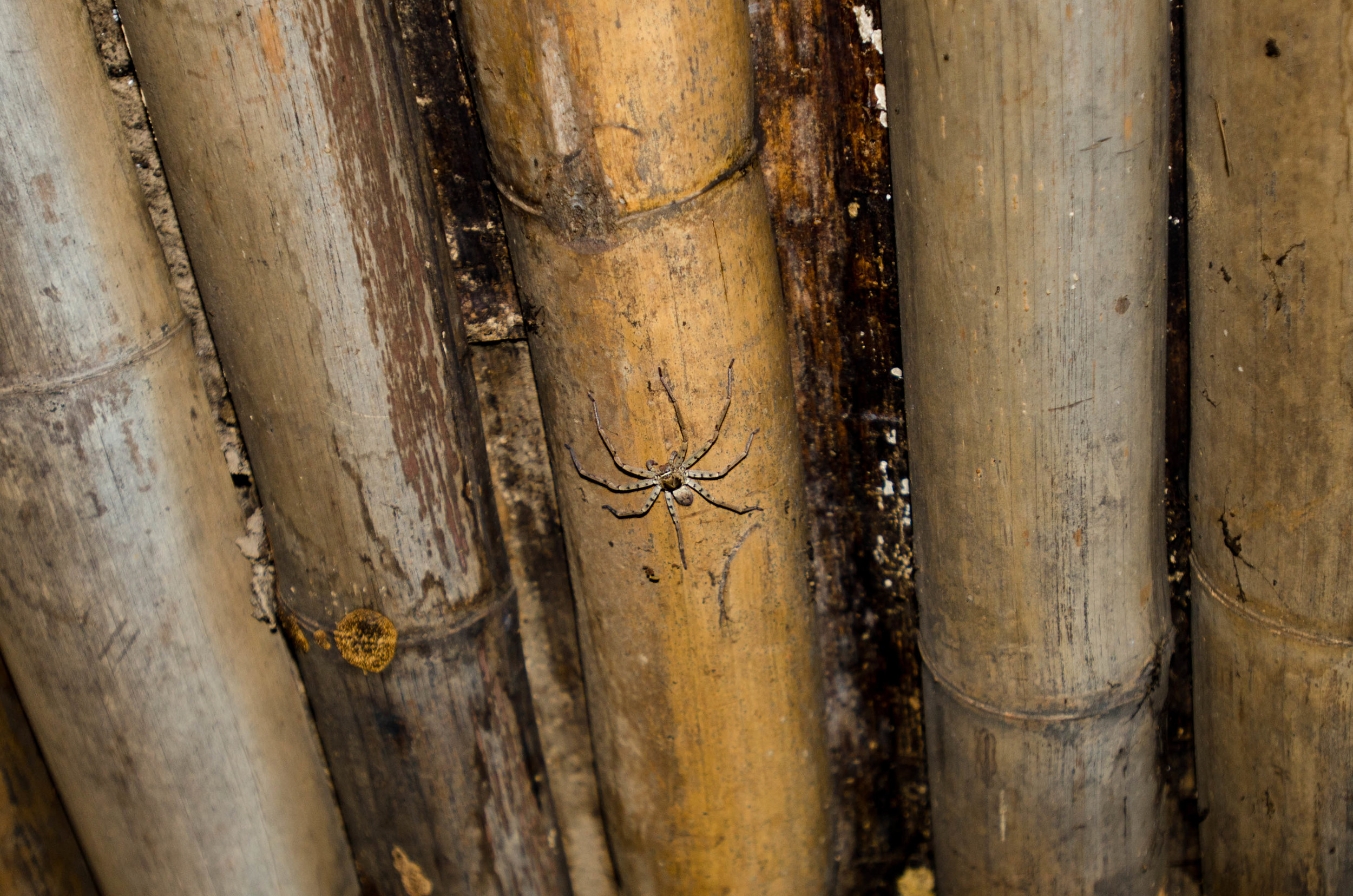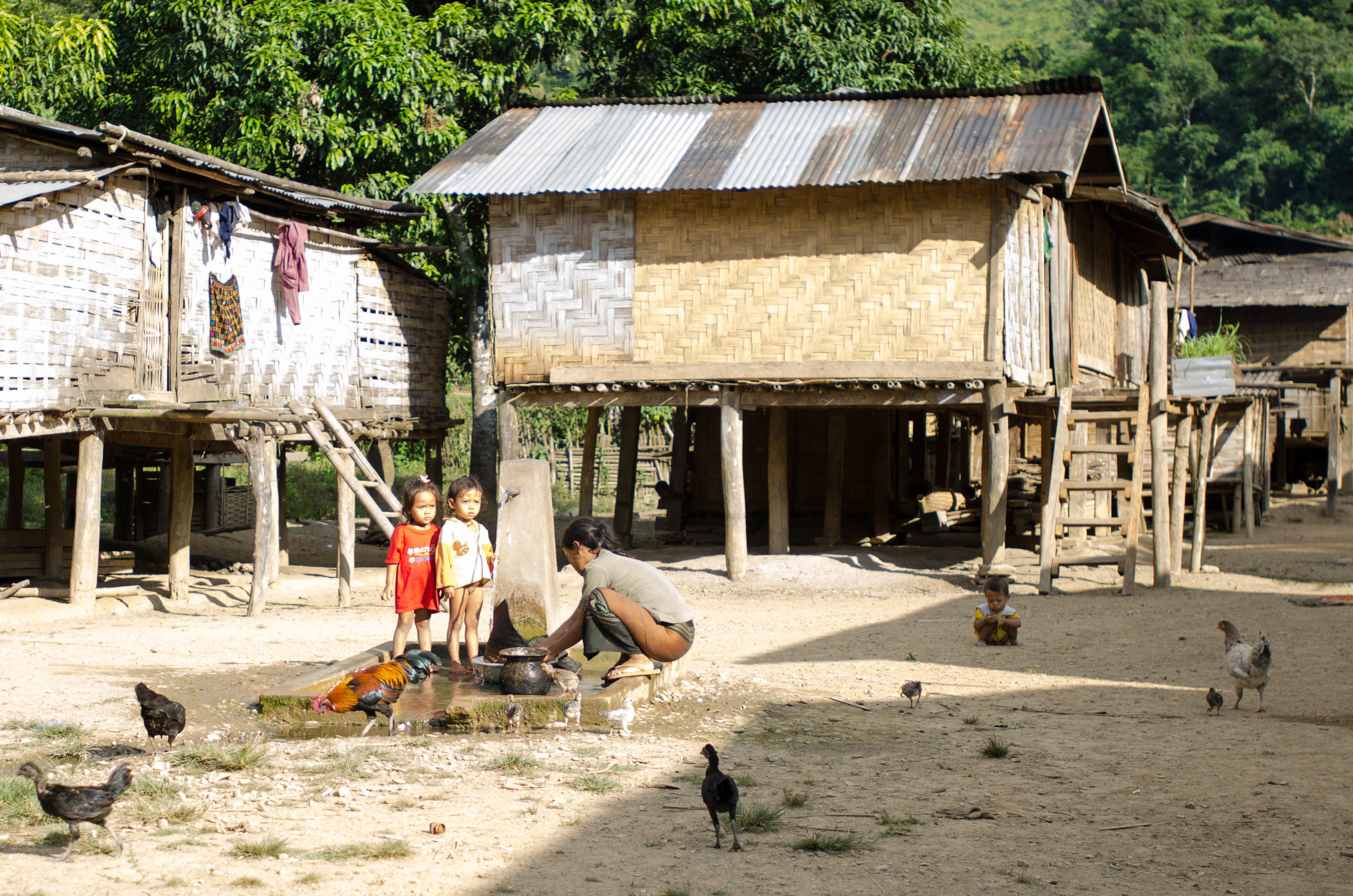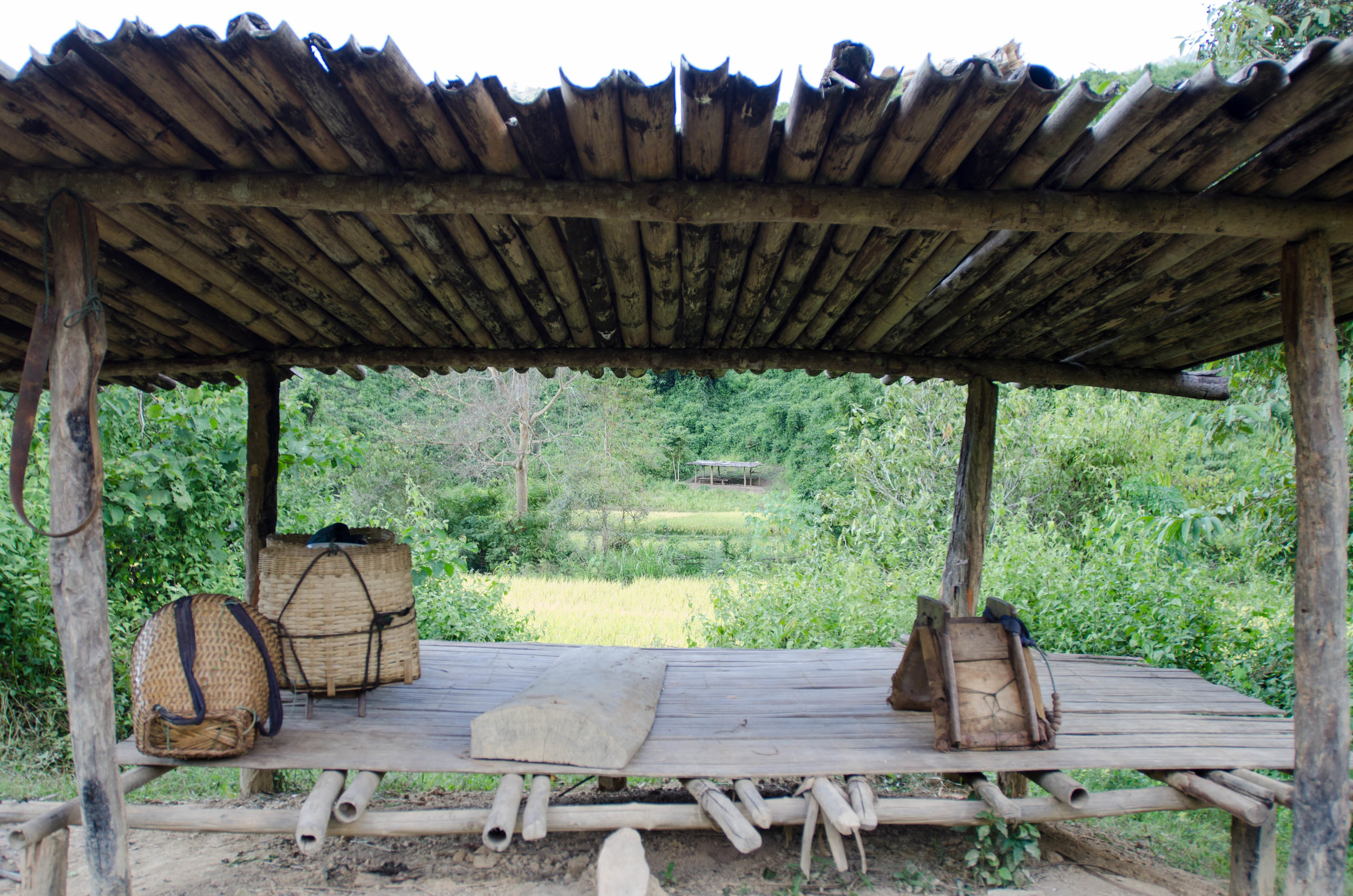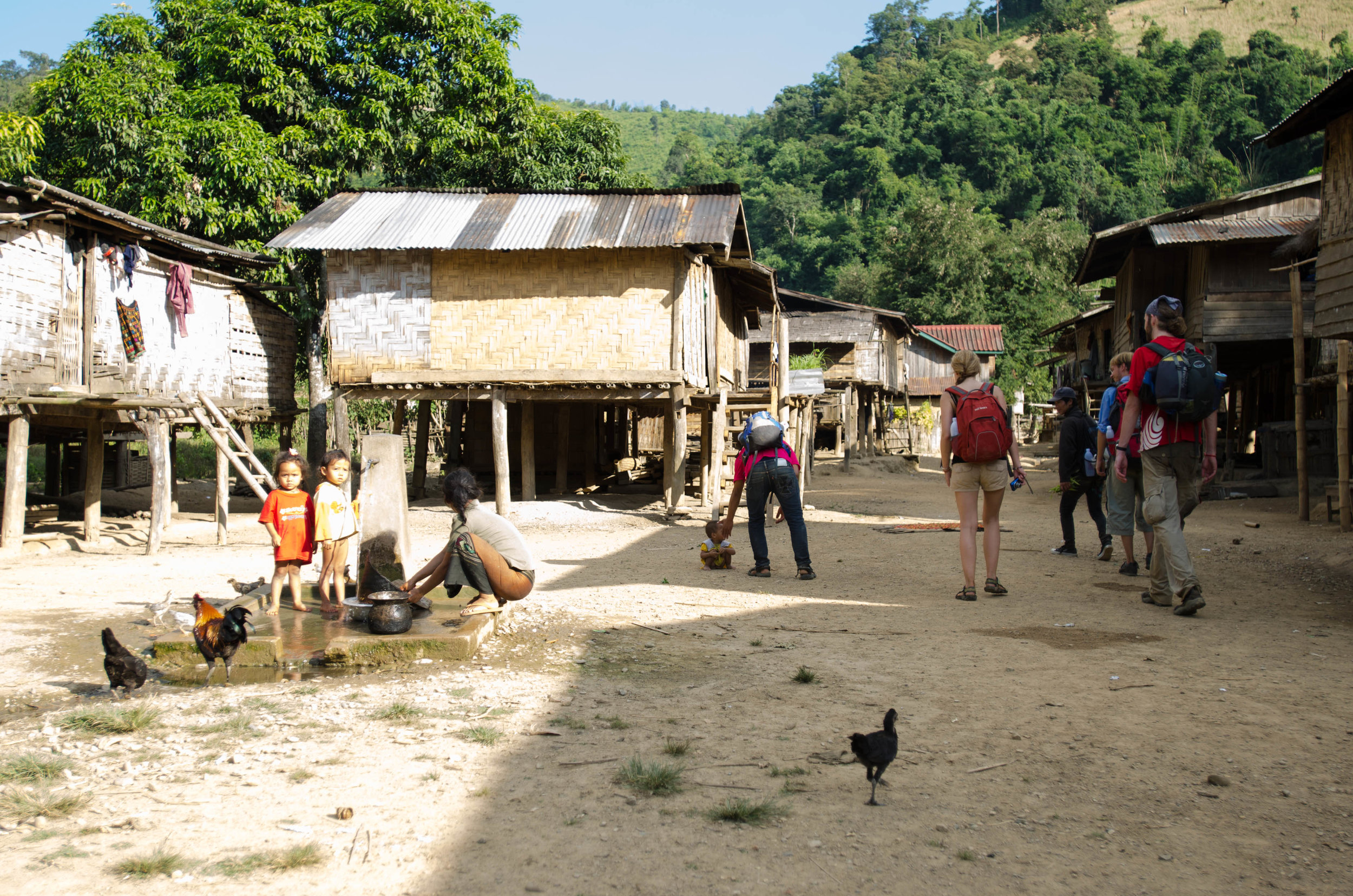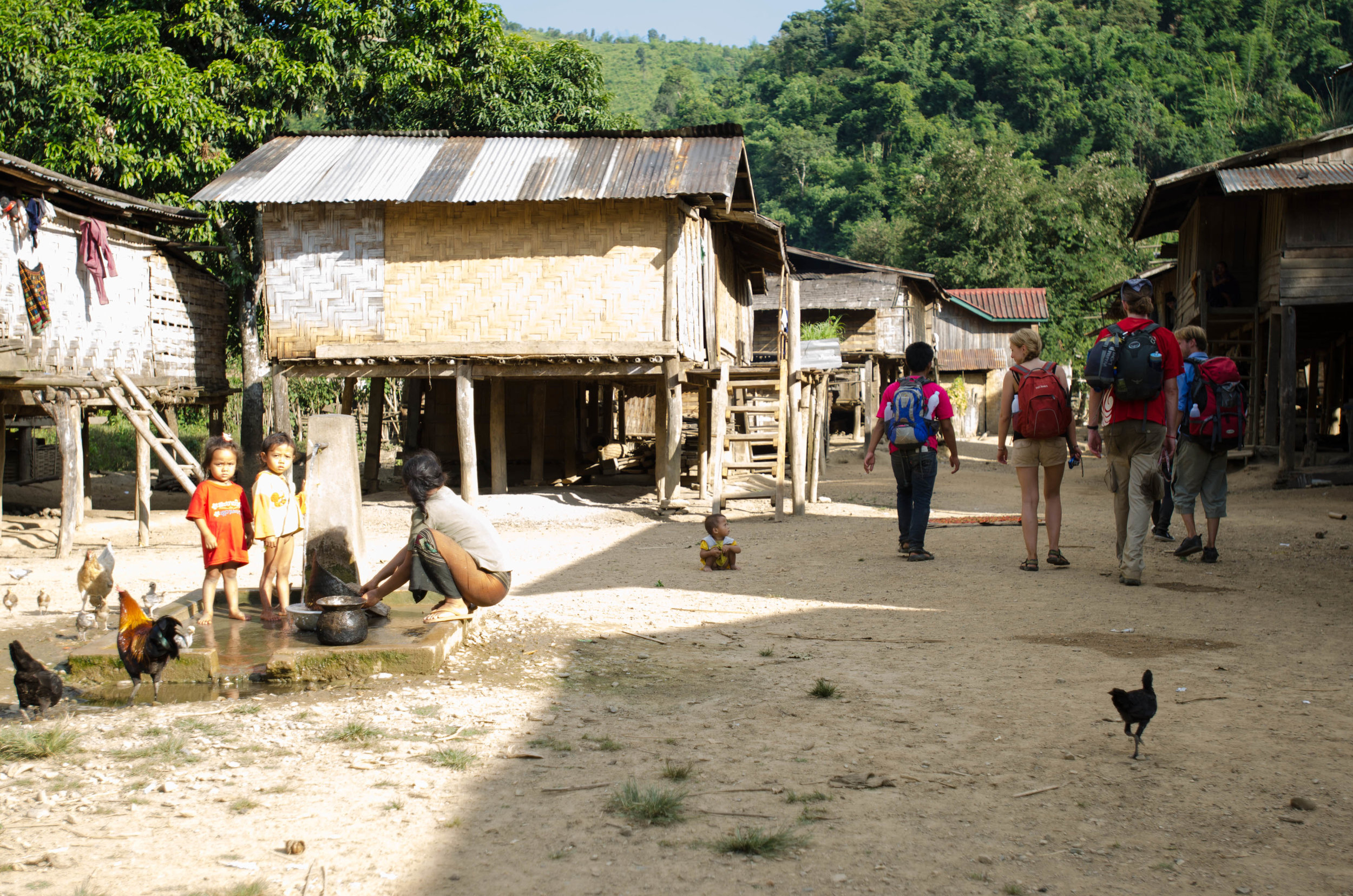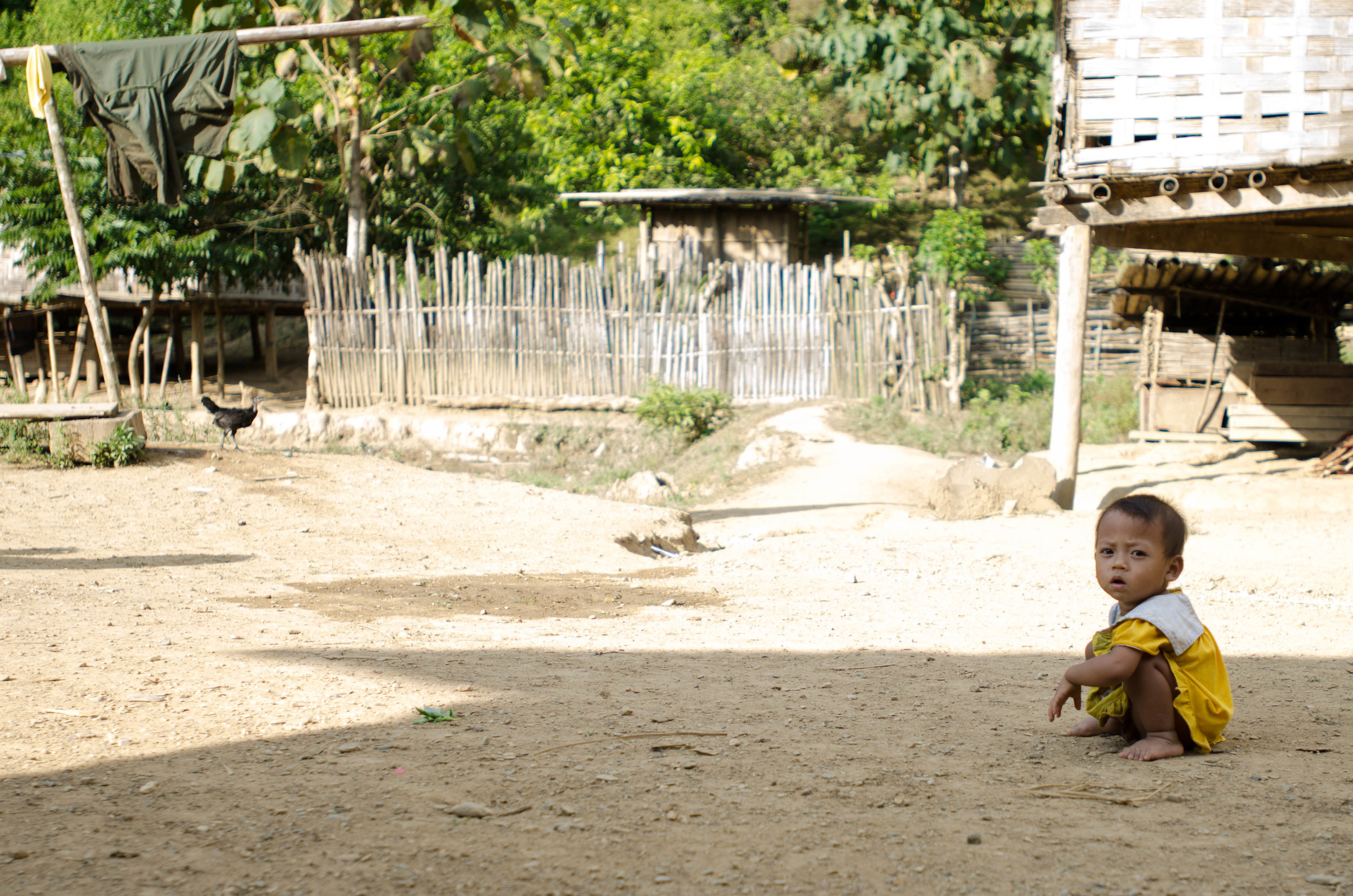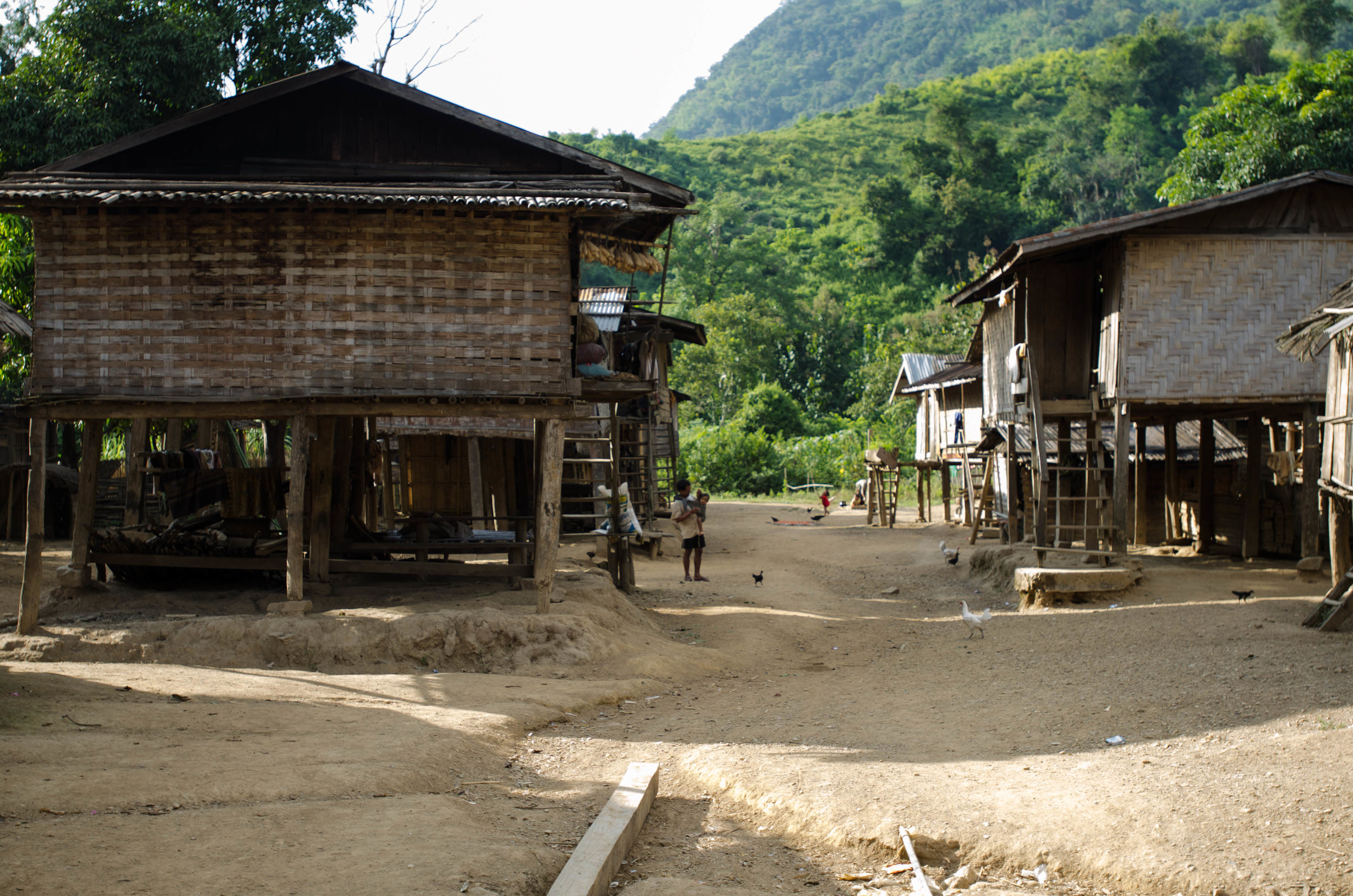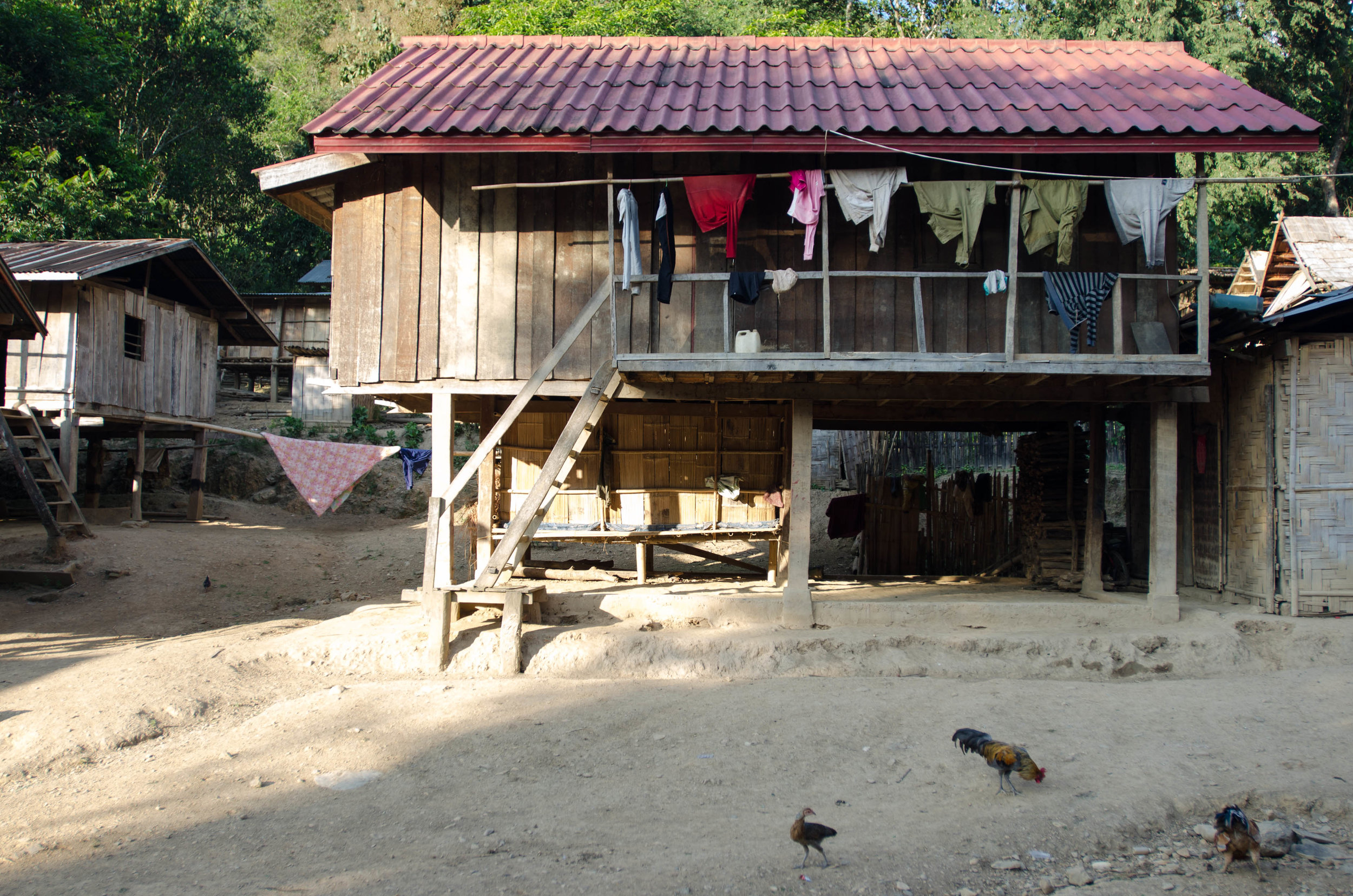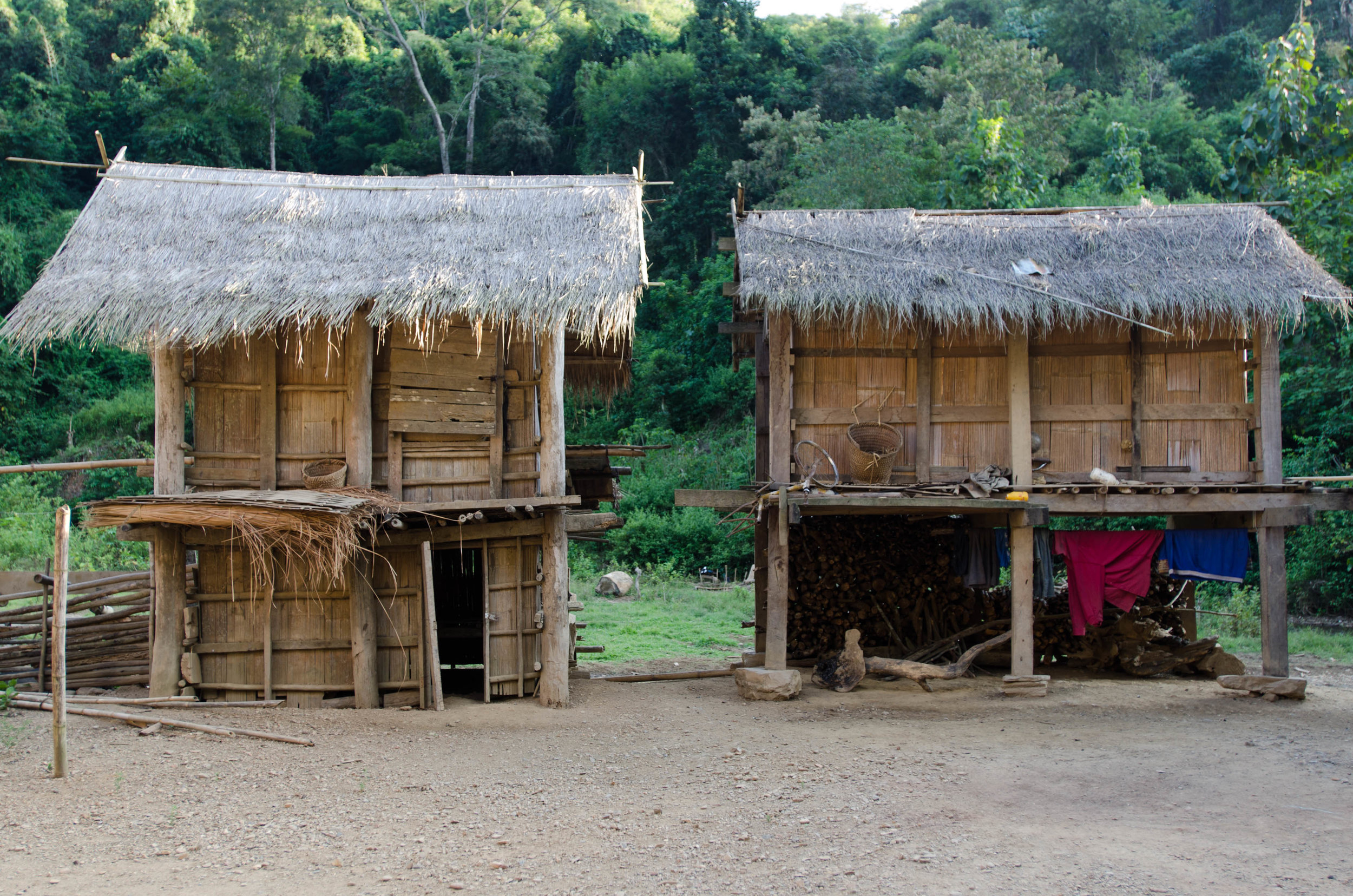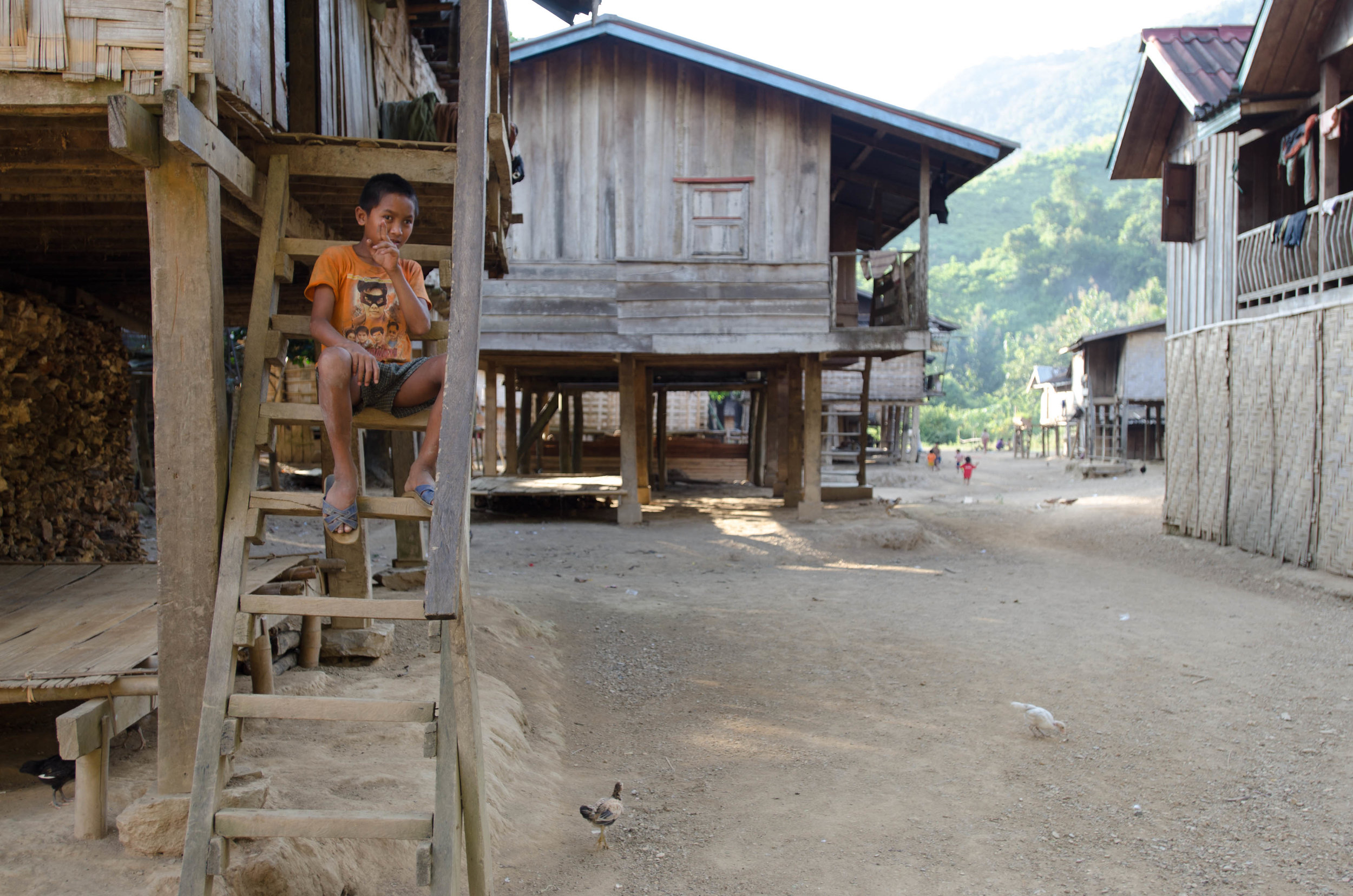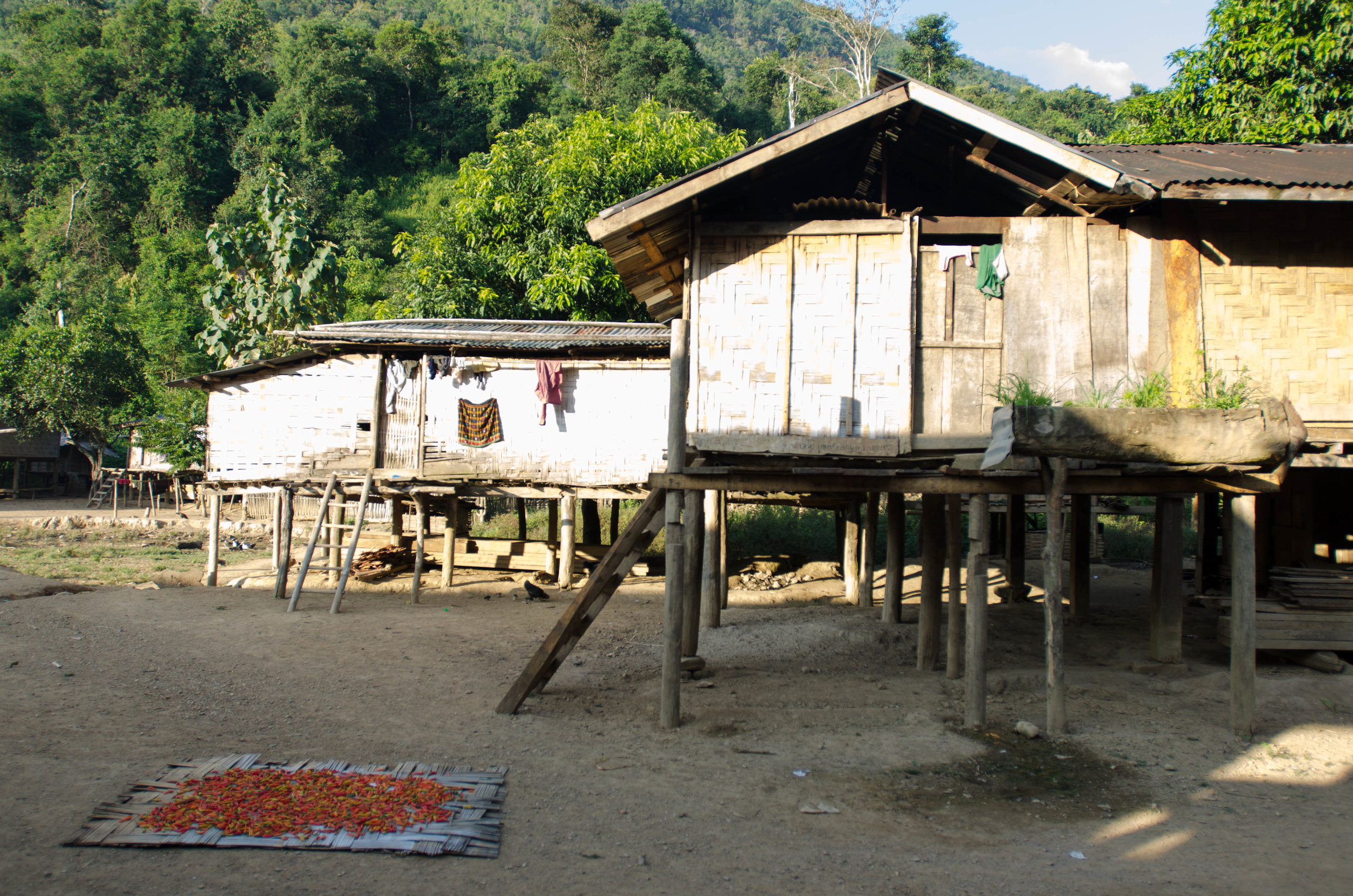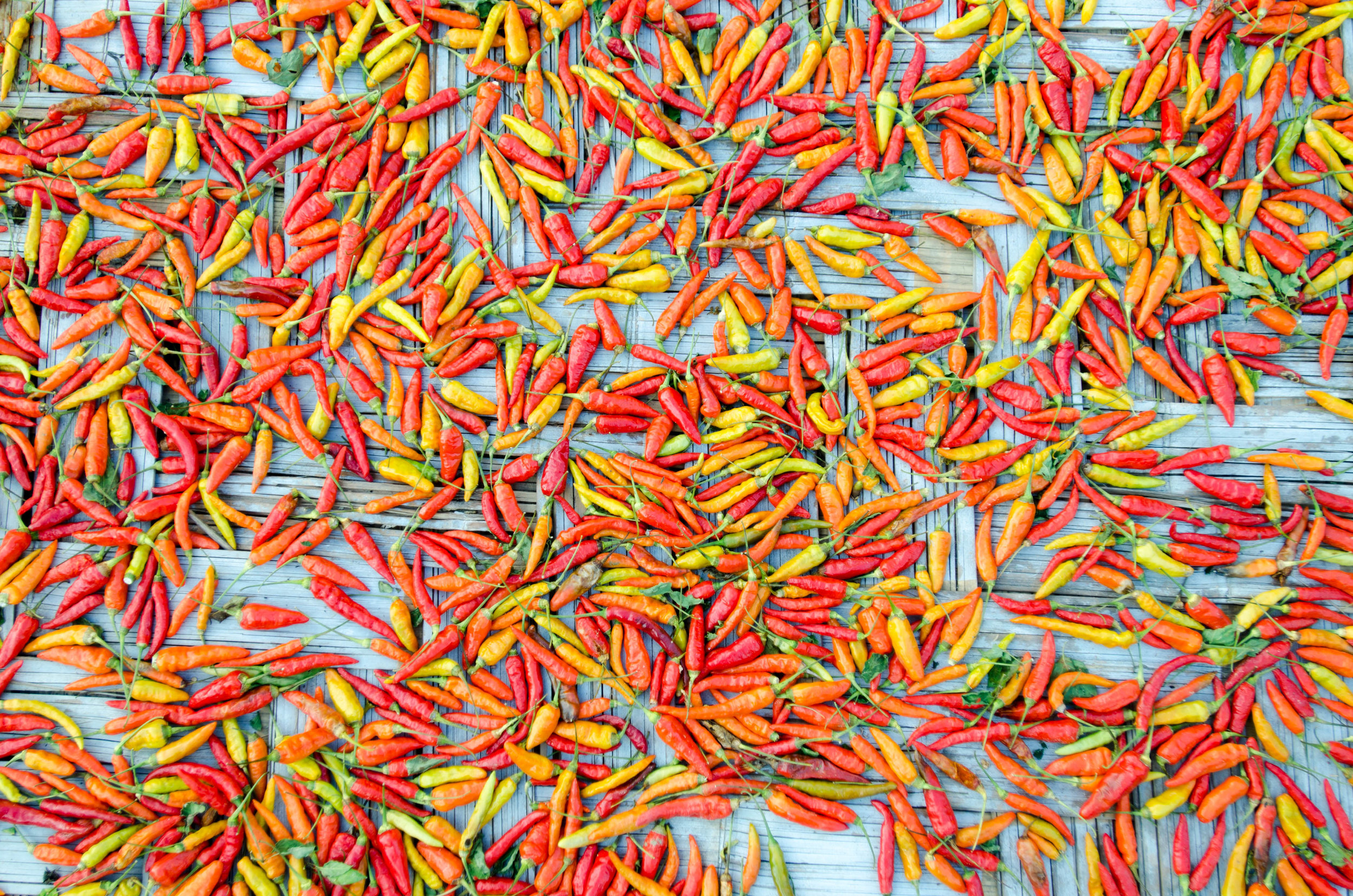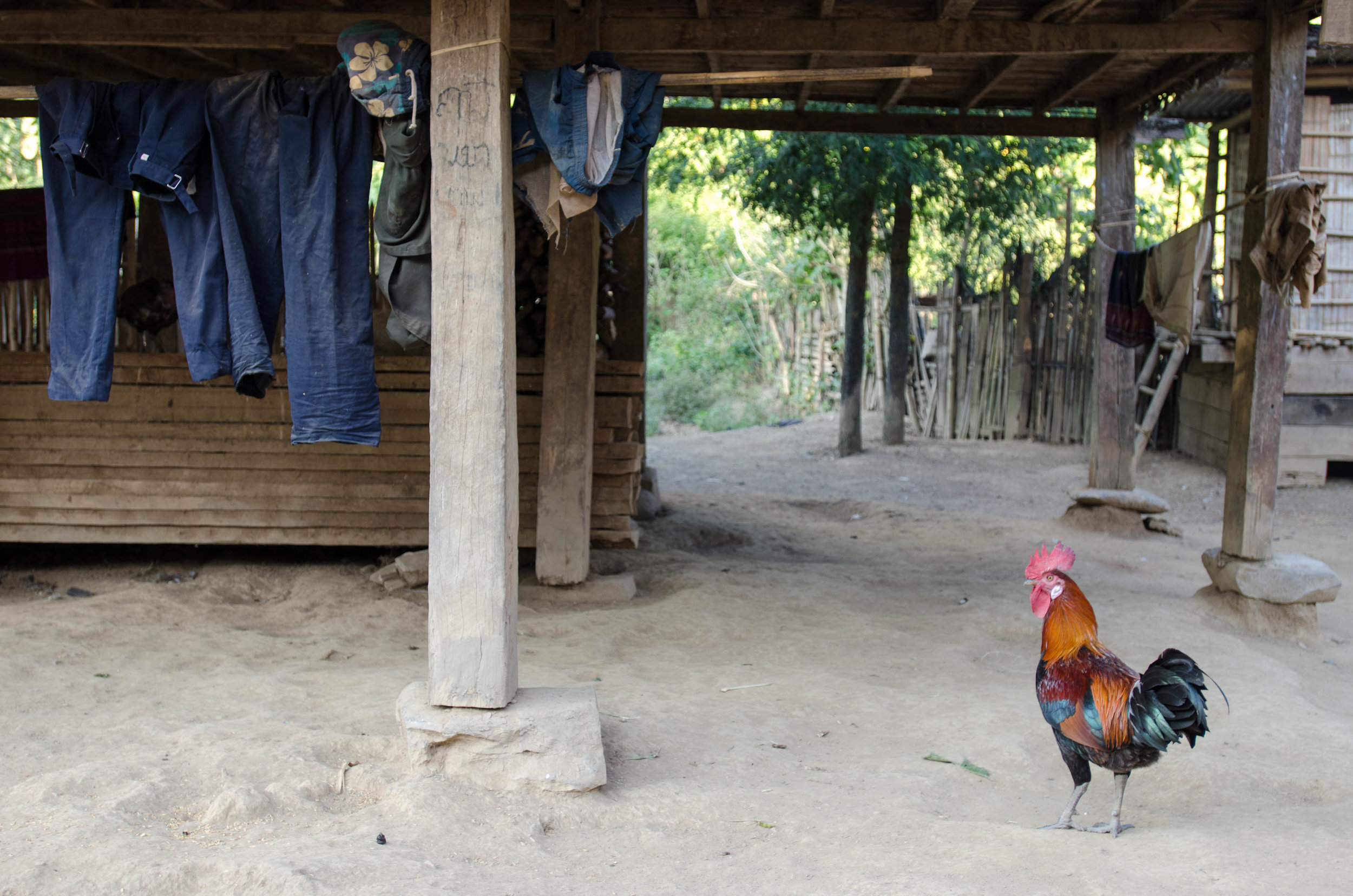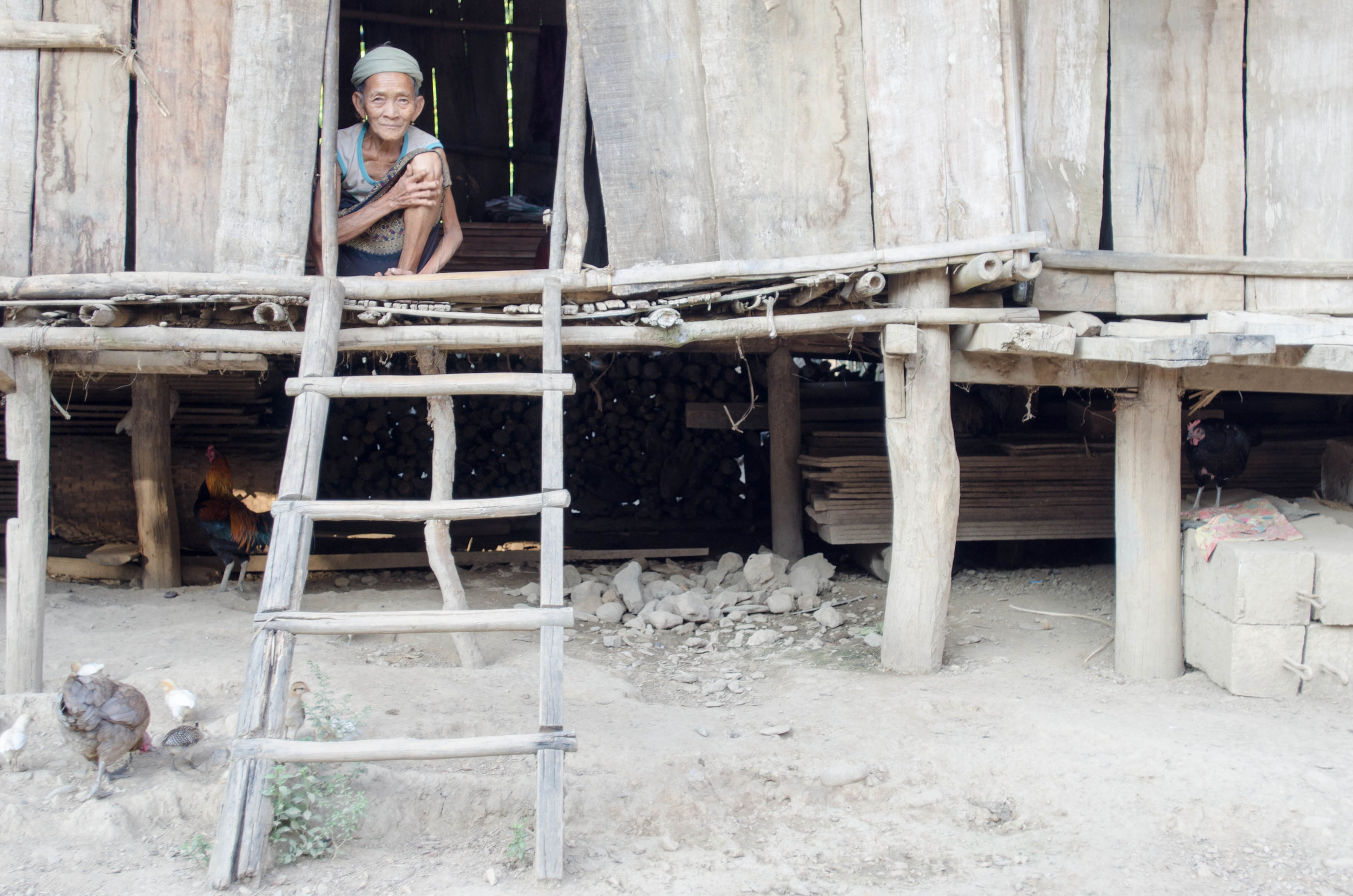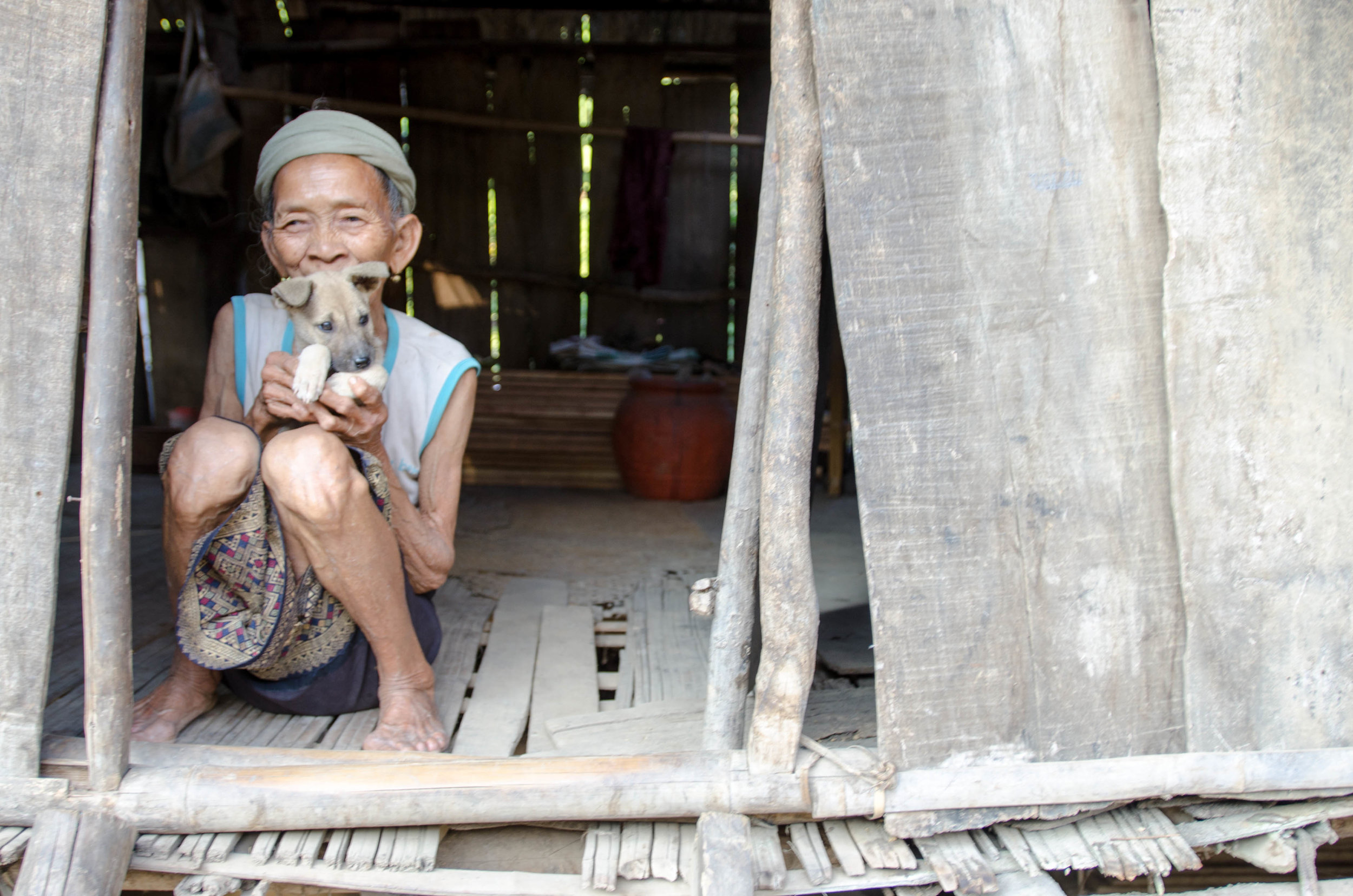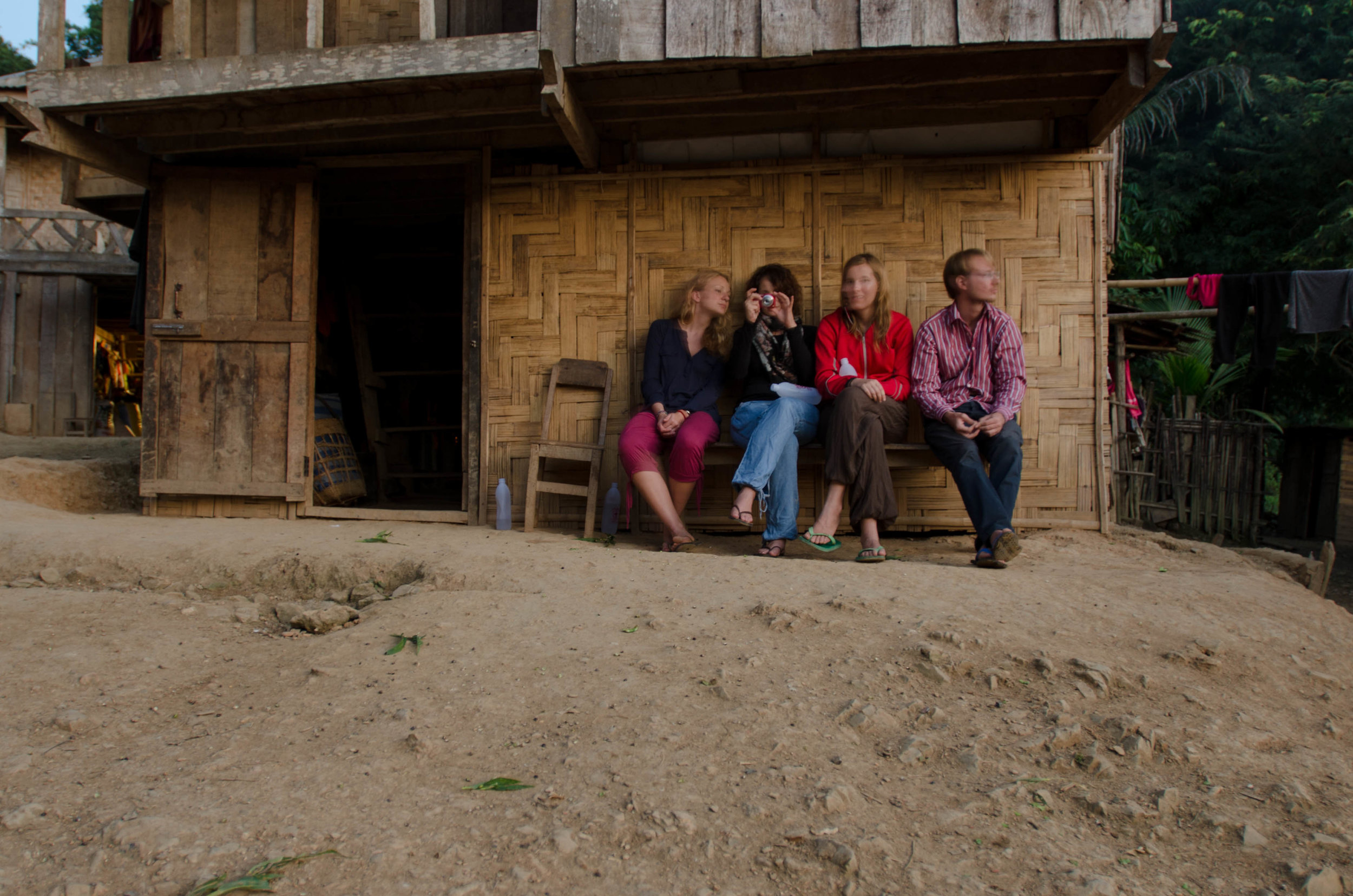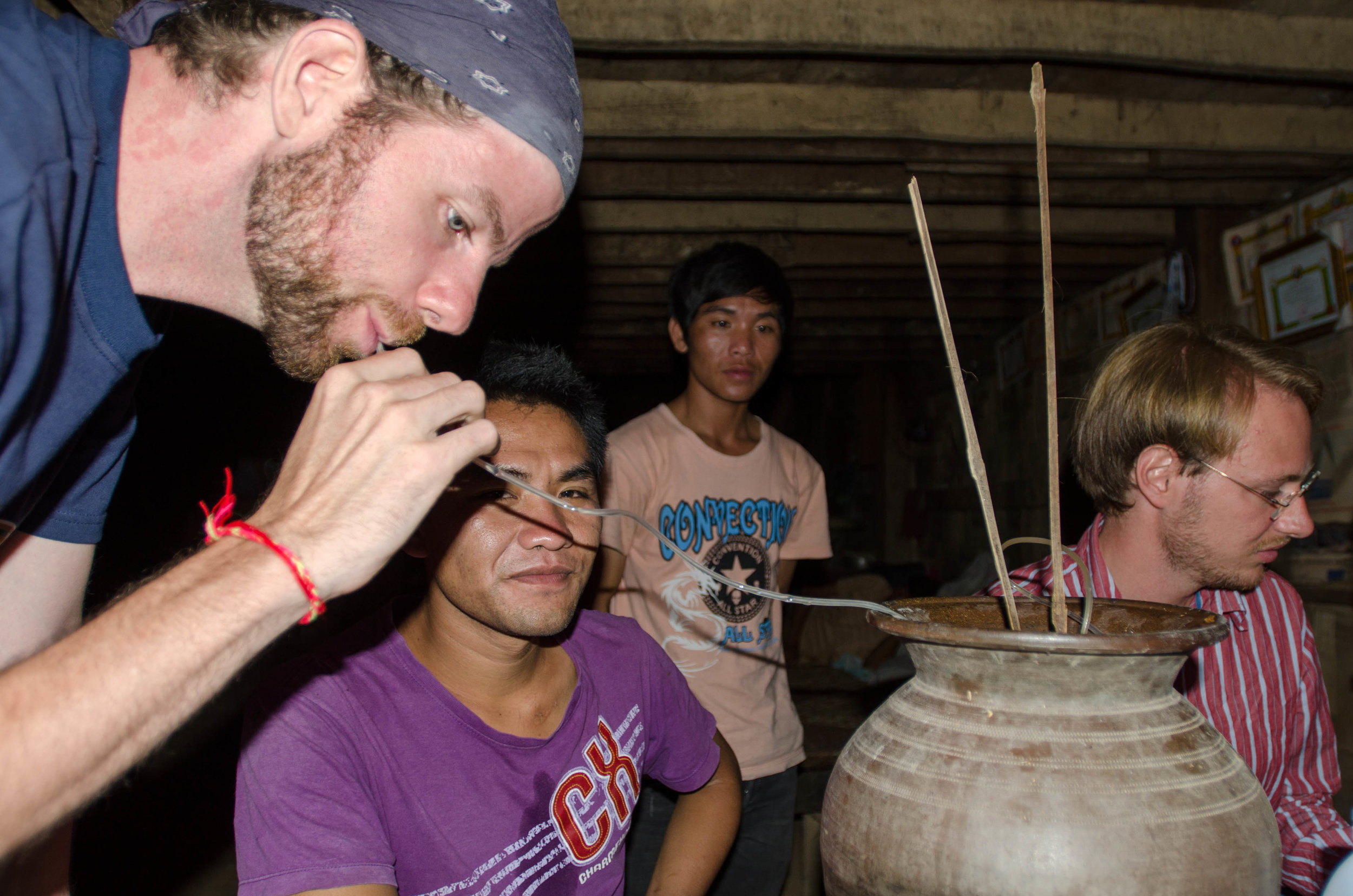"If I die from the leeches, will you please sell my photos and make them famous? You can keep some of the money, you know, for more travel, but maybe you can also set up a foundation for women as well?" I sleepily asked Andrew as we walked to the trekking office in the morning.
"The 'This Kentucky Girl Foundation'?" Andrew played along with my impending leech death.
"Hmm… How about 'The Elizabeth Groeschen for Women Everywhere Foundation'?" I responded.
"Or what about 'The Elizabeth Groeschen Foundation for Women Everywhere'?" He countered.
"Ok, I guess that'll work. And the first woman you're going to help is…"
"Linda." He finished my sentence.
"Yes. Linda." I smiled. (Linda, if you remember, is the adorable little one we became friends with in Siem Reap.) and then I frowned, "Please let there be no leeches!"
There weren't. At least on the first day of our three day trek into the countryside/jungleside/farming villages outside of Luang Prabang. There were three snake sightings (they all disappeared before I got a good look at one of them) and there were lots and LOTS of spiders. Today's trek was as we were told, an intermediate hike through a litle bit of jungle, but mostly through paths winding around feilds of sticky rice all the way to our first village and homestay: Long York.
In Laos, people are separated into different groups according to the elevation in which they inhabit. Lao people inhabit the lowest elevation, then Khmou, followed by Hmong who inhabit the highest elevations in Laos. The Khmou village we went to today was called Long York (like New York, our guide kept repeating- although the two places couldn't be any more different). 111 people in 38 families in habit this village. It was the smallest village I've ever stayed in, and they clearly are not familiar with western faces. As soon as the six of us arrived (me, Andrew, and four Germans) with our guides, children came out of the woodwork to follow us and watch us and attempt to interact with us. One of the German girls brought some children's books for them, and even though they couldn't read very well, they were completely wrapped up in the pictures, or maybe the 'newness' of the books. They munched on hopps from the fields and wordlessly taught me how to peel back both shells of the hopps before popping it into my mouth. I'm not sure what all the fuss was about, as I saw many vendors in the market in Luang Prabang eating the same snack. It seemed like a lot of work- biting and peeling back two shells before eating the inner most hopp? seed? inside. But the kids got a kick out of sharing with me, so I entertained them. A lot of our first hour in the village revolved around the kids talking and staring about us, and us doing much of the same.
Exploring the village didn't take long. It was basically two dirt roads lined with wooden, mostly elevated houses. There was no electricity, save one house which seemed to blast Lao music. What looked like an electrical line ran to the house, but we weren't sure why the electrical line didn't run to the village chief's house instead. (Unfortunately, we forgot to ask about this detail.) Some men were in the village tending to the children the day we arrived, which surprised me. Usually, from my own observations, this is always the woman's task in these small villages. After watching both men and woman return from the the fields at dusk, I asked our guide about the responsibilities of the mother/father/husband/wife. He replied that it's up to each family. But if they don't go to the field, then they can't eat later. So generally, both husband and wife work equally hard, sharing almost all responsibilities.
Showers were a community affair. Literally. As there was no running water in each house, one watering hole provided water for the entire village. Everyone filled up their drinking water jugs here, and yes, showered, here. Despite being wrapped up in my scarf (that doubles as a towel, blanket, etc.) and Andrew in his swimming trunks, the entire community seemed to turn out to watch as we tried to clean ourselves up. I would have been more embarrased about the attention, but I was too amused by their amusement. I was also grateful for the baby wipes I had stashed in my backpack, and knowing a private shower was only two days away.
I made friends with this older woman in the village, she was incredibly amused seeing herself on my camera's LCD screen. After I took her picture, and showed it to her, she motioned to the puppy and wanted a picture taken with it as well. Old village women usually like me, for what reason, I have yet to find out, but it's always sweet and makes me feel a little special when they are open and nice to me.
Later, I attempted to pull out my tri-pod to take a picture of us in front of the chief's village. Not only were the children fascinated by my tri-pod, so were the women coming in from the fields. Sabina is taking a picture of me because right at this moment, nearly 25-30 children are surrounding me as I try to set up the tri-pod on an even ground, and adjust some settings for a self-timed picture. It didn't work, but it was an entertaining attempt.
Here, we're all laughing (and moving) at the woman who is standing directly in between the camera on the tri-pod and the group of us waiting to take a picture. She was so entertained by all of us facing her laughing and smiling, none of us knowing how to say "Get out of the way!"
We had dinner prepared by our guides, sticky rice, a kind of vegetable soup (vegetables being some leaves of some sort and mushrooms- it was very good) and one piece of boiled chicken each. It was modest, but filling, and very welcome after our six hour trek to get there. After dinner, Lee asked us if we would like to try the Khmou whiskey. We nodded, yet none of us planned on drinking too much before another day of trekking ahead of us. Lee, had other plans. He returned with a large vat full of fermented rice. as in solid rice. That could get you tipsy with one whiff. Then they poured water into the vat, stuck two long straws into the mixture and after pouring one full glass of water onto the top of the mixture, two people were supposed to drink until all of the water on top was gone. Despite the smell, it didn't taste strong at all, almost like a cider. It was pretty good, but again, I'm all too familiar with the effects of fermented rice beverages, and after a few sips, we all turned Lee down in his efforts to get us to drink more. Instead, we watched as he drank most of the vat, attempted to get Jimmy (our other guide) to join him, and finally succeeded getting the chief's wife to have some, before even she declined any more.
We slept in a little hut next to the chief's house on a bamboo platform under mosquito nets that effectively kept the spiders-the-size-of-your-fists out. These spiders were everywhere once the sun went down. Armed with headlamps (Thanks, Momma) and one handheld flashlight, Andrew, Sarah, and I attempted to go to the outhouse before turning in for the night. You know you have a good travel partner when he holds the outhouse door open so he can shine his light on the larger than life spider on the wall while you squat down to do your business using the light on your head. "You pee like a girl." Andrew teased, and then stepped aside as I held the door open, light on the spider, for Sarah as she took her turn. We all woke up in the middle of the night to rain, some of it coming in on us. Sarah and Toby moved to the chief's house while Andrew shoved me closer to Sabina for the rest of the night. And then, there were the roosters, cock-a-doodle-doo-ing it before dawn and the blast of music from several houses down in the village.

